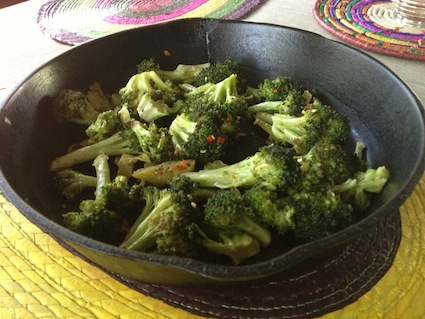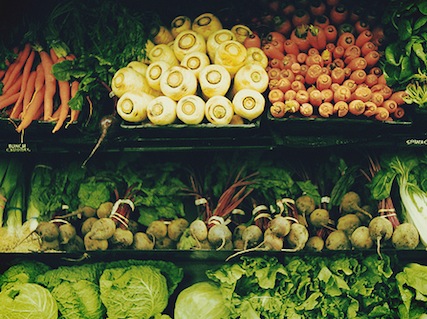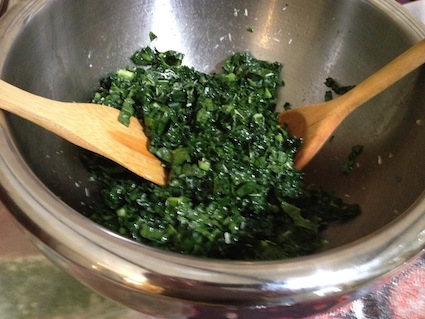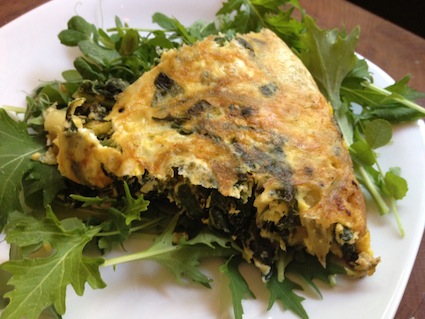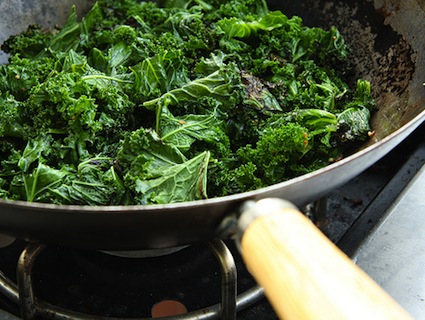
Just another mood-altering substance? <a href="hhttp://www.flickr.com/photos/anotherpintplease/2912992309/">Another Pint Please</a>/Flickr
Humans have long turned to substances—from beer to Prozac—to improve their outlook on life. But there’s another possible remedy to the rigors of existence that doesn’t get nearly as much attention: the green stuff that grows in the field, and I don’t mean marijuana (though, hey, that might help, too). A new study (abstract) from Harvard researchers found a strong association between adults’ levels of optimism and the amount of carotenoid antioxidants in their blood. Carotenoids are found in richly colored green and orange vegetables, including kale, sweet potatoes, carrots, and collard greens. The more servings of carotenoid-containing vegetables you eat, the results suggest, the brighter your outlook.
Of course, the researchers can’t be sure that the association means a cause-and-effect relationship: It may just be that optimists are more likely to eat their veggies than pessimists, they emphasize. But unlike, say, Prozac, veggies’ side effects are positive—for example, eating them improves life for the millions of beneficial microorganisms that live in our guts and keep us healthy.
If you’re able to get your hands on some good product this weekend, here’s a recipe for raw kale salad that may or may not brighten your outlook, but will taste really good.

